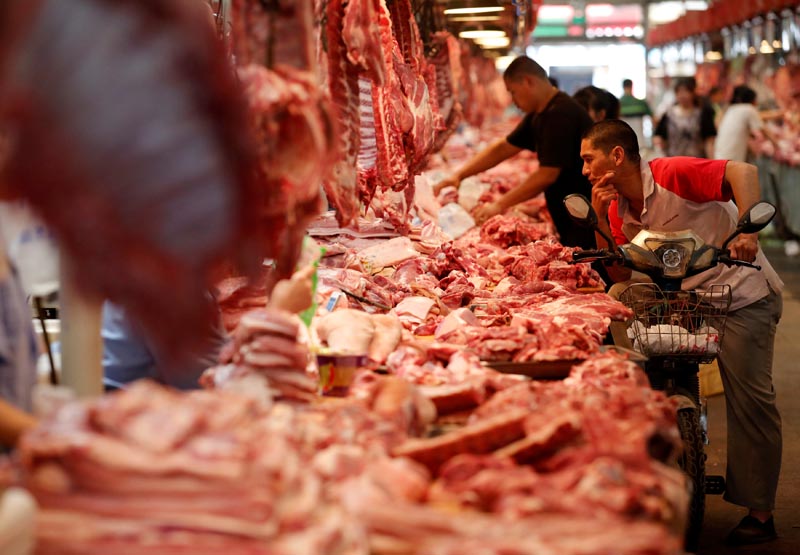World could feed itself if people ate less meat, cut waste: study
LONDON: The world could feed its growing population without causing irreparable damage to the environment if people ate less meat, halved food waste and adopted better farming practices, scientists said on Wednesday.
But failing to implement even one of those actions could exacerbate climate change, increase pollution and deplete natural resources, making the planet unsafe for humanity, a study by an international team of researchers found.
"No single solution is enough to avoid crossing planetary boundaries," said Marco Springmann, the lead author of the study, which he said was the first to take a comprehensive look at the impact global food production has on the planet.
"But when the solutions are implemented together, our research indicates that it may be possible to feed the growing population sustainably".
The world needs to produce 50 percent more food to support nearly 10 billion people by 2050, the United Nations says.
But unless things change, this could increase the impact of food production on the environment by up to 90 percent by 2050 to a level where the planet was no longer a "safe operating space for humanity", according to the study.
The prevent that, everyone should switch to diets rich in green vegetables, fruit and nuts and low in red meat and diary products, according to the research, funded by Scandinavian think tank EAT.
"We recommend having less than one serving of red meat per (week)," Springmann, a senior researcher at the Oxford Martin Programme on the Future of Food, told the Thomson Reuters Foundation by phone.
Livestock are responsible for about 14.5 percent of global greenhouse gas emissions, according to the UN Food and Agriculture Organization (FAO).
The amount of food thrown away - currently a third of the total - would also need to be halved and best practices to boost yields, recycle fertilizers and improve water management adopted worldwide, the researchers said.
"For the average consumer ... the takeaway message is, change your diet and write to your politicians to implement better regulations," said Springmann.
On Monday, the UN warned the world risked even more extreme weather and loss of species unless rapid unprecedented changes in all aspects of society or were taken to keep the Earth's temperature rise to 1.5 Celsius.






